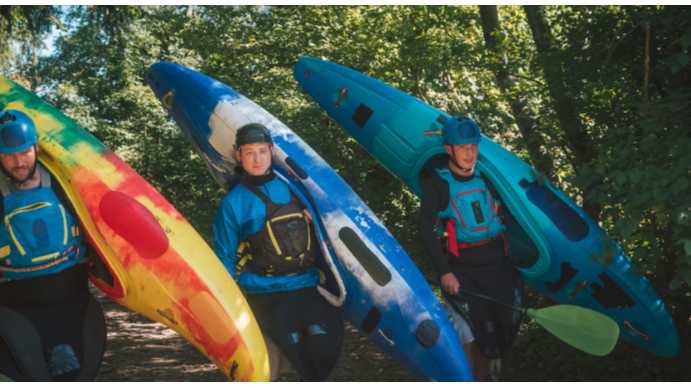Portage is an important part of any kayaking trip! Learn how to do it safely and efficiently by reading Kayaking Nation’s new guide.

There's nothing like being out on the water in a kayak! But before you can get into the water you need to portage your kayak to the location, and this can sometimes be challenging. To help you out with the portaging process, Kayaking Nation has created a guide with easy tips and tricks that you can follow.
The new guide highlights some of the most commonly used solo and tandem portage techniques and outlines the pros and cons of each. It also shares some of the safety measures and preparatory steps you should take before portaging.
Go to https://kayakingnation.com/how-to-portage-a-kayak-carrying-techniques to find out more.
Portage is the process of carrying your kayak over land from one navigable body of water to another, and according to Kayaking Nation, it is a foundational skill that you should be able to perform no matter your experience level. However, because terrains and weather can be volatile, there is no definitive way to portage, and as a result, you need to know several lifting and carrying techniques so you can adapt to different situations.
In its new guide, Kayaking Nation divides portage into two types—solo and tandem. Solo portage involves carrying your kayak alone, either on your shoulder or with a kayak cart, whereas tandem portage is done with another person, usually one of you holding the bow and the other holding the stern.
Whether doing solo or tandem portage, Kayaking Nation encourages you to use proper lifting techniques, bending at the knees and hips, keeping the back straight and the core muscles engaged, and lifting with the legs. When carrying a kayak, you should hold it close to your body to reduce strain and allow for greater mobility.
Though the two methods differ in terms of execution, the safety considerations are more or less the same for both. Personal flotation devices should always be worn during portage in case there is an accident; but to help avoid accidents, you should have your portage route planned out ahead of time and you should know the weather forecast for the day.
Once you've arrived at your location, there is some post-portage care that you should do before getting into the water. Usually, this will involve doing a full inspection of your kayak, checking for any dents, cracks, and holes, and cleaning it so there are no impediments to its performance. If your kayaking trip is at its end, Kayaking Nation suggests you dry your kayak as quickly as possible so mold doesn't start to develop and you store it in a cool place.
“Portaging a kayak is essential for any kayaker who wants to explore new waterways and access remote locations,” said a spokesperson for the website. “Portaging can be challenging, but it can be done safely and efficiently with the right techniques and equipment. With the help of our new guide, kayakers can be fully prepared for their next portaging experience.”
About Kayaking Nation
Kayaking Nation is an online resource for kayakers who want to learn about the latest gear and improve their kayaking skills. The site is owned and operated by a group of experienced kayakers committed to providing readers with unbiased information, tips, and buying overviews.
Don't let terrain and weather prevent you from getting out on the water! Visit https://kayakingnation.com/how-to-portage-a-kayak-carrying-techniques to learn more about portage!
